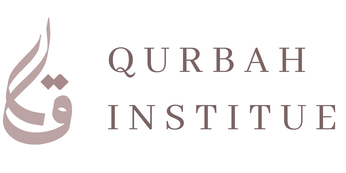Changing the youth
We often view the youth through a pessimistic lens in reflection of what we see on social media, or by way of gossip. This post explores the discussion of dealing with problems we may encounter,
Zen Mahmood
5/8/20252 min read
'The youth are lost!" says a man as he hears of the latest breaking news of his cousin's questionable antics from aunty Fatima. She acts as the community's local news reporter on familial relations and tensions, albeit she has a voluntary role.
We often view the youth through a pessimistic lens in reflection of what we see on social media, or by way of gossip. What many of us don't know is that the decline of the youth has been apparent, and a talking point for centuries. Plato, the famous philosopher, had been reported to remark 'What is happening to our young people? They disrespect their elders, they disobey their parents. They ignore the law. They riot in the streets inflamed with wild notions. Their morals are decaying. What is to become of them?'1. It's nothing new.
Our conversations are immersed in shallow discussions on what is wrong, and lack the depth of exploring solutions in an ocean of problems. Is it not time we flipped the script and try to make a meaningful impact on the same old story that has started to get a bit boring?
Before we understand why our youth seem to be declining, it is important for us to understand our youth. We will never be able to relate to them as many have forgotten the complexity of adolescence. More importantly, a child is always bound by their circumstances, their role models and to some extent, their social class. Parents are the first step to stopping the dominos fall continuously.
An active parent, who has demonstrated and made clear the vision, values and expectations of the family unit tends to have less major issues sending ripples into society. Whereas a passive parent would allow their children to navigate the world on their own, with minimal guidance and only being available when problems arise.
No matter how advance a madrassah system becomes, society can not expect a child with a corrupt environment to blossom just because they are now learning to read the Quran. A child's potential will only be visible once their environment springs into one which is safe, productive and spiritual. The change in our youth comes from the change in our parents. The change in our parents must come from a conscious decision, a submission to Allah, the religion of Islam.
Some may see Islam as a collection of permits and prohibitions, one who is 'practising' is not merely one who prays. A muslim, one who submits, is one who embodies the principles of Islam, one of them being good character.
عَنْ مَالِك أَنَّ رَسُولَ اللَّهِ صَلَّى اللَّهُ عَلَيْهِ وَسَلَّمَ قَالَ بُعِثْتُ لِأُتَمِّمَ حُسْنَ الْأَخْلَاقِ
Malik reported: The Messenger of Allah, peace and blessings be upon him, said, “I have been sent to perfect good character.”
Al-Muwatta'
The emphasis in Islam on good character is immense, yet its application is difficult to witness in adults. A connection exists between one's spirituality and one's good character. Before we complain about our misfortunes and the things that we don't have, we must sit and reflect on our actions, thoughts and sins. This practice is called المحاسبة in Islamic tradition.
The practice of Muhasabah is of importance on a regular basis for one to reflect and to improve. This is the process of honestly holding yourself to account and without it, we continue to drown into the abyss of ignorance of our own spiritual and intellectual situations.
Each and every minute, breath and moment we are gifted by Allah ﷻ, we have an opportunity to develop, learn and increase our spiritual connection to Him. By making the most of these gifts, we are able to develop ourselves and thus, develop our children in this ever-changing world that we have no choice but to deal with.
